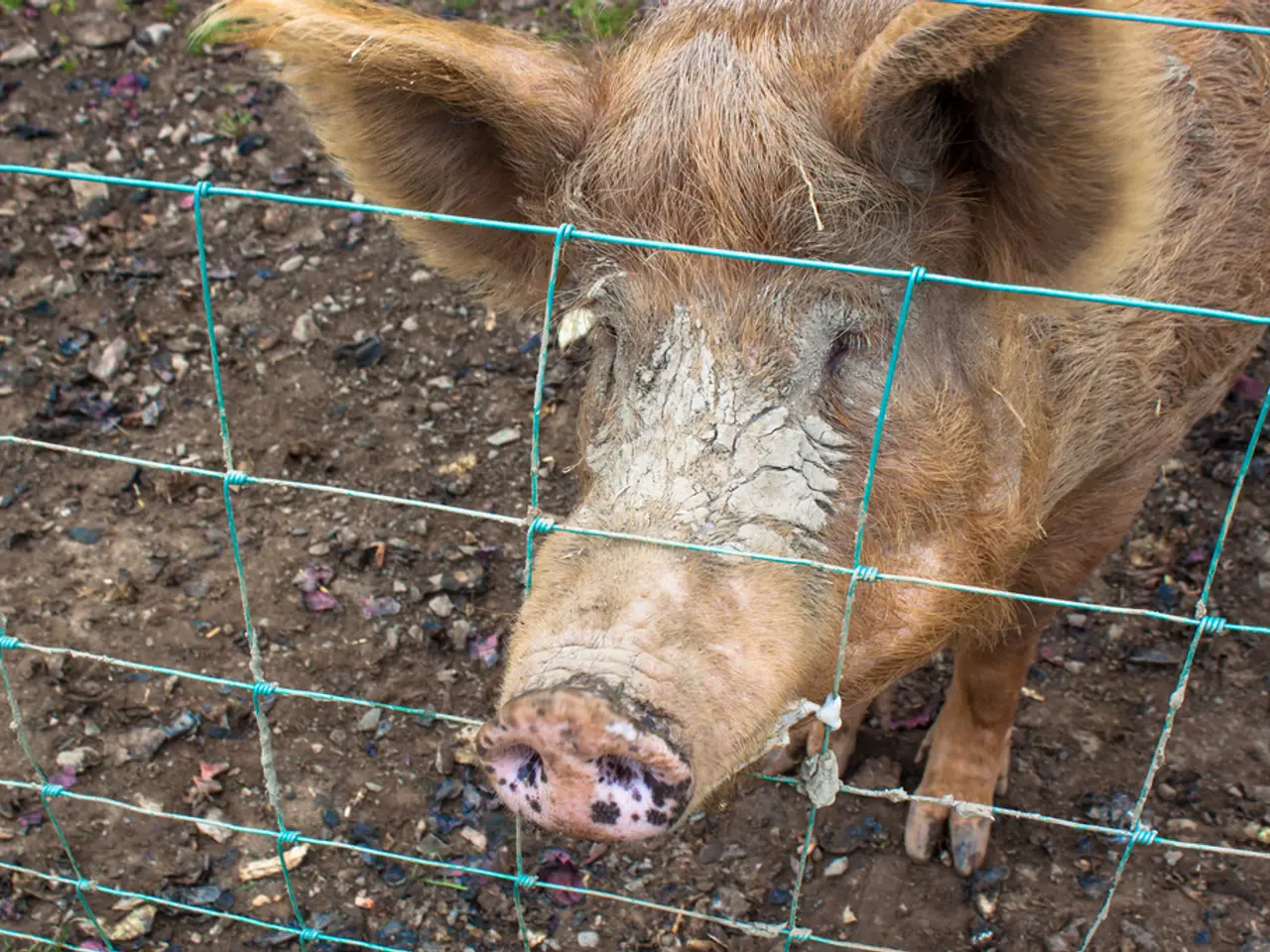ASF Outbreak in NRW: A Local Crisis with National Implications
Pig disease outbreak in North Rhine-Westphalia does not prompt farmowners to sound the alarm
There's a sense of cautious optimism among pig farmers in North Rhine-Westphalia (NRW) as the recent outbreak of African Swine Fever (ASF) appears to be regionally contained, despite the investiture in technical equipment by the state. Torsten Staack, CEO of the German Pig Keepers' Interest Group (ISN), commends the professional containment efforts, though pig farmers in the affected area are undoubtedly suffering losses [1].
Staack sheds light on the fortunate circumstance that the ASF hasn't affected an area with high pig-holding operations density [1]. However, Lower Saxony, with around 7 million pigs, still outnumbers NRW, which has 5.8 million pigs [2]. Recent estimates suggest a surge in pig numbers in Lower Saxony to 6.9 million [2].
The Federation for Animal Health (FLI), responsible for animal diseases, is probing the extent to which the ASF in NRW is linked to outbreaks in Hesse, Rhineland-Palatinate, Baden-Württemberg, Brandenburg, and Saxony [1]. These states have recorded more than 1500 infected wild boars in 2025 alone [3].
The market has so far remained unruffled, as operations with house pigs seem to be secure, according to Staack's assessment [1]. There are no direct effects on the export of pork to third countries, either [1]. Since Germany's first reported ASF case in 2020, 19 pig holdings have been affected, with Lower Saxony experiencing an outbreak in a piglet producer in July 2022 [1].
While the virus is harmless to humans, an infection in house and wild pigs is almost always fatal [2]. In the event of an outbreak, the entire herd is typically culled, resulting in significant economic damage for affected farmers [2].
Contextual Insights
The current ASF situation in NRW is connected to other federal states in Germany, as they all share spaces with a growing population of wild boars, which aids the spread of the virus [1][2][3]. The close geographical proximity of NRW to states with multiple ASF cases could indicate a movement of the virus between these areas [2]. The Friedrich-Loeffler-Institut (FLI) is actively investigating the virus in NRW to establish links with the outbreaks in other states [1][2]. These investigations signify a collaborative national effort to monitor and control ASF spread [1][2][3].
References:[1] ntv.de, mbr/dpa[2] live.de[3] tagesschau.de
Keywords:* Germany* African Swine Fever* Agriculture* Lower Saxony* North Rhine-Westphalia* Wild boars* Virus spread* Pig farming* Economic impact
In light of the ongoing African Swine Fever (ASF) crisis in Germany, it would be essential for the German government to devise a community policy to address the economic impact on farmers, potentially including financial aid and vocational training programs for affected pig farmers. Given the growing number of ASF cases not only in North Rhine-Westphalia (NRW) but also in several other federal states with increasing wild boar populations, it is crucial for the research sector, such as the Friedrich-Loeffler-Institut (FLI), to intensify their efforts on science-based research towards finding a cure or treatment for medical-conditions related to the virus, ultimately contributing to the control and prevention of ASF spread in the future, thus safeguarding the agricultural business and stability of the German economy.




